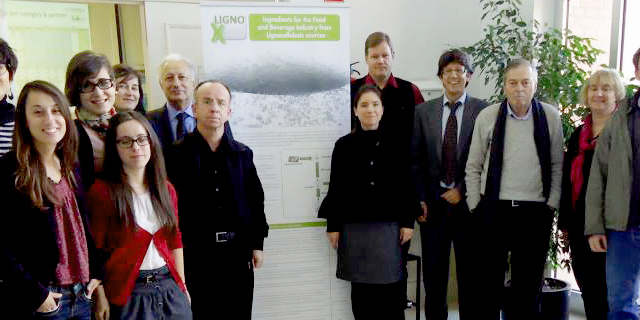2 million Euros of incentive granted by EU 7th Framework Program to ‘LIGNOFOOD’ Project of TÜBA Principal Member Prof. Dr. Mustafa Ersöz and his team
‘LIGNOFFOD’ Project which has been developed for the benefit of small and medium sized enterprises by Selçuk University (SU) Advanced Technology Research and Implementation Center (ILTEK) which is led by TÜBA Principle Member Prof. Dr. Mustafa Ersöz, has entitled to receive support of 2 Million Euros by taking place in 10% of most successful projects.
In the Project which lecturers of Selçuk University Prof. Dr. Mustafa Ersöz, Assistant Prof. Dr. Meltem Demirel Kars, Assistan Prof. Dr. Gökhan Kars, Assistant Prof. Dr.Meryem Kara, Assistan Prof. Dr. Serpil Edebali and PhD. Saliha Dinç took charge in; it is aimed to provide solution to project partner small and medium sized enterprises (KOBI) by developing biotechnological processes for to produce healthy additive substances from natural resources.
With this project, it is aimed to achieve convert lignocellulosic by-products, particularly haulms of cannabis and funicular plants that planted in Europe and Konya, to healthy food additive substances. Component named xylitol, which is derived as a result of said conversion can be used as low-calorie sweetening agent used by diabetic patients, as well as xylo-oligosaccharides can be used as superb prebiotic that strengthen digestive system. Also, haulms or chaffs of funicular plants like cannabiswiil be used and precious and hign value added food additive sunstances will be procured by this way. Thus, both agricultural by-products will be used to good accounts and low-calorie sweeteners which may be used by diabetic patients and prebiotics that strenghten digestive system, will be procured. Following laboratoty studies, products will become healthier by adding procured component to products.
Studies in this direction are carried out by project partnership that constituded of 5 countries and biotechnology based companies. As a consequence, if inspections on laboratory generated component's effect on intestine cells will result in positive way, it will be possible to use it as food additive substance. Lignocellulosic agricultural by-products and haulms to be disposed will be transformed into foodadditive substances which have high added values.

